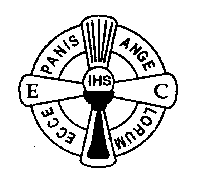Excerpts
From the Manual of the
Eucharistic Crusade of the Apostleship of Prayer
Published
in 1962 by the Central Office of the Eucharistic Crusade, Rome

Educating the Youth to Live the Mass
(slightly edited by Fr. Boulet)
4. FREQUENT COMMUNION.
b) Difficulties which lessen the value of frequent Communion.
Familiarity breeds contempt. This law is valid in things of the spirit, especially among children, who easily and quickly come to take things for granted. Thus when something becomes familiar to them, it runs the risk of being less esteemed and performed without fervour or love. If this were to happen to Holy Communion, it would cause serious harm.
The causes which can lead to merely habitual Communion in its less praiseworthy sense are: Lack of preparation and of proper dispositions; Monotony in the manner of preparation, if the children always use the same method and recite the same prayers; Lack of reverence towards the Blessed Sacrament.
These dangers can be avoided by: 1°. Solid instruction on how to prepare for Communion; 2°. Variety in the way of preparation; 3°. Regular suggestions of new reasons and motives for frequent Communion. In this the Monthly Intentions, which are always drawing our attention to the new needs of the Church, can be of great help.
The right motives for receiving Holy Communion should frequently be put forward. This will help to root out the less worthy motives and even sinful ones, such as vanity, desire of praise and recognition by superiors, pretended piety, etc. These motives, especially among girls, can exercise an influence in receiving Communion which must not be overlooked. This danger is indeed quite difficult to remove, but it should not be exaggerated. That is why, we should instruct children correctly so that they know that bad motives do not please God and can even be sinful, therefore they should fight against them. However, too much insistence on these defective motives can deter good children from the Blessed Sacrament.
It is of course of much greater importance that, out of human respect, children do not receive Communion when they are in a state of grave sin. Therefore if frequent Communion is to be urged, confession also must be made readily available to the children. All species of questioning to find out which and how many times Crusaders communicate is to be avoided. If a Crusader absents himself for a considerable time from Communion, this cannot remain a secret for long. Then a priest Director might, with the utmost discretion, remark on this to the child. The following instruction of the Sacred Congregation of the Sacraments (Dec. 8, 1938) is to be observed: "when approaching the Holy Table all things are to be avoided which make it more difficult for adolescents who wish to abstain from receiving Communion to do so without being noticed. Explicit inducements to Holy Communion, a rigid or quasi-military order of approaching the Communion rail, medals for those who go to Communion, etc., are to be avoided."
Home | Contact
| Mass Centres | Schools
| Pilgrimages | Retreats
|
Precious Blood Residence
District Superior's
Ltrs | Superor General's
Ltrs | Various
Newsletter | Eucharistic
Crusade | Rosary Clarion | For
the Clergy | Coast to Coast |
Saints | Links